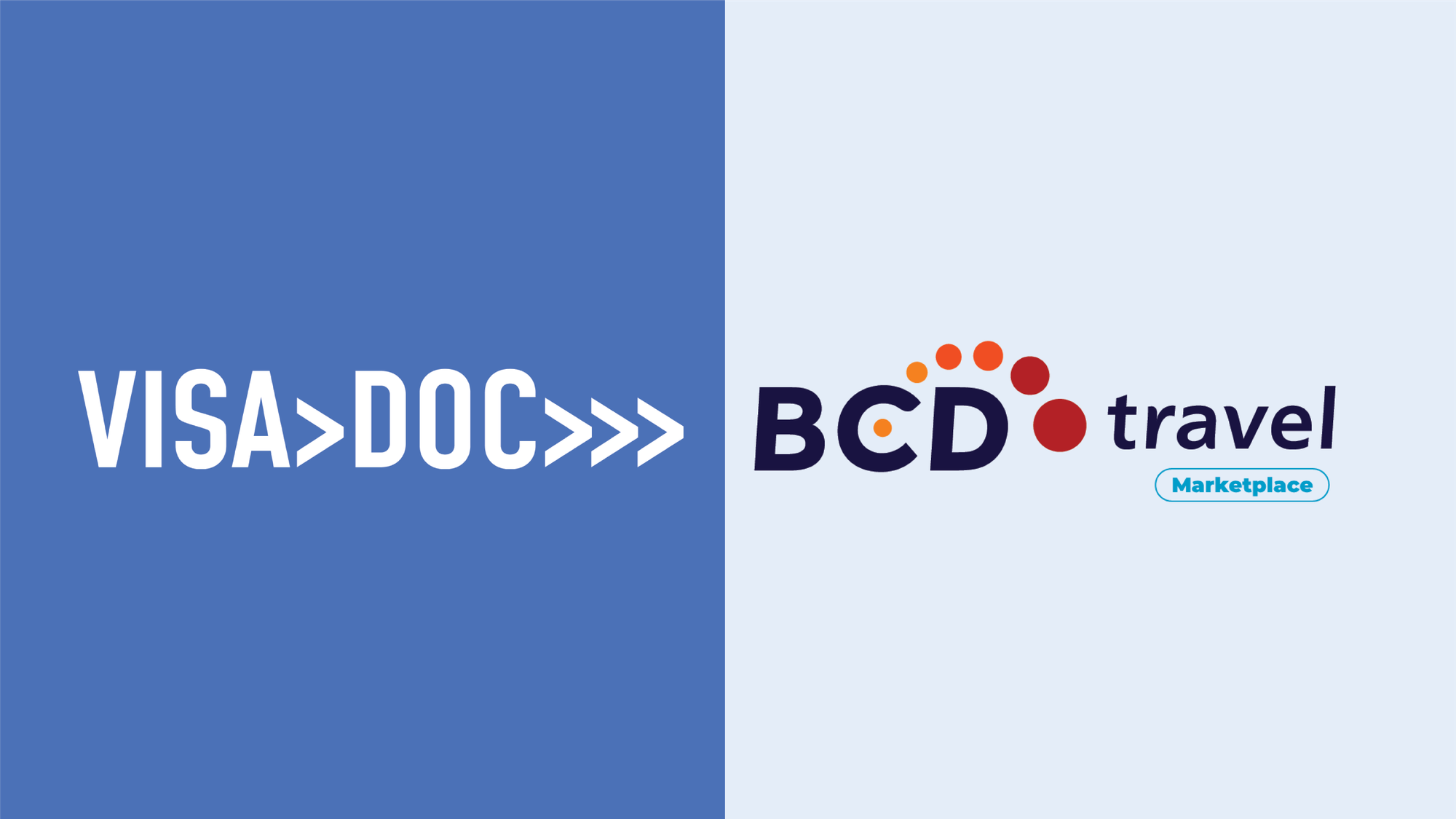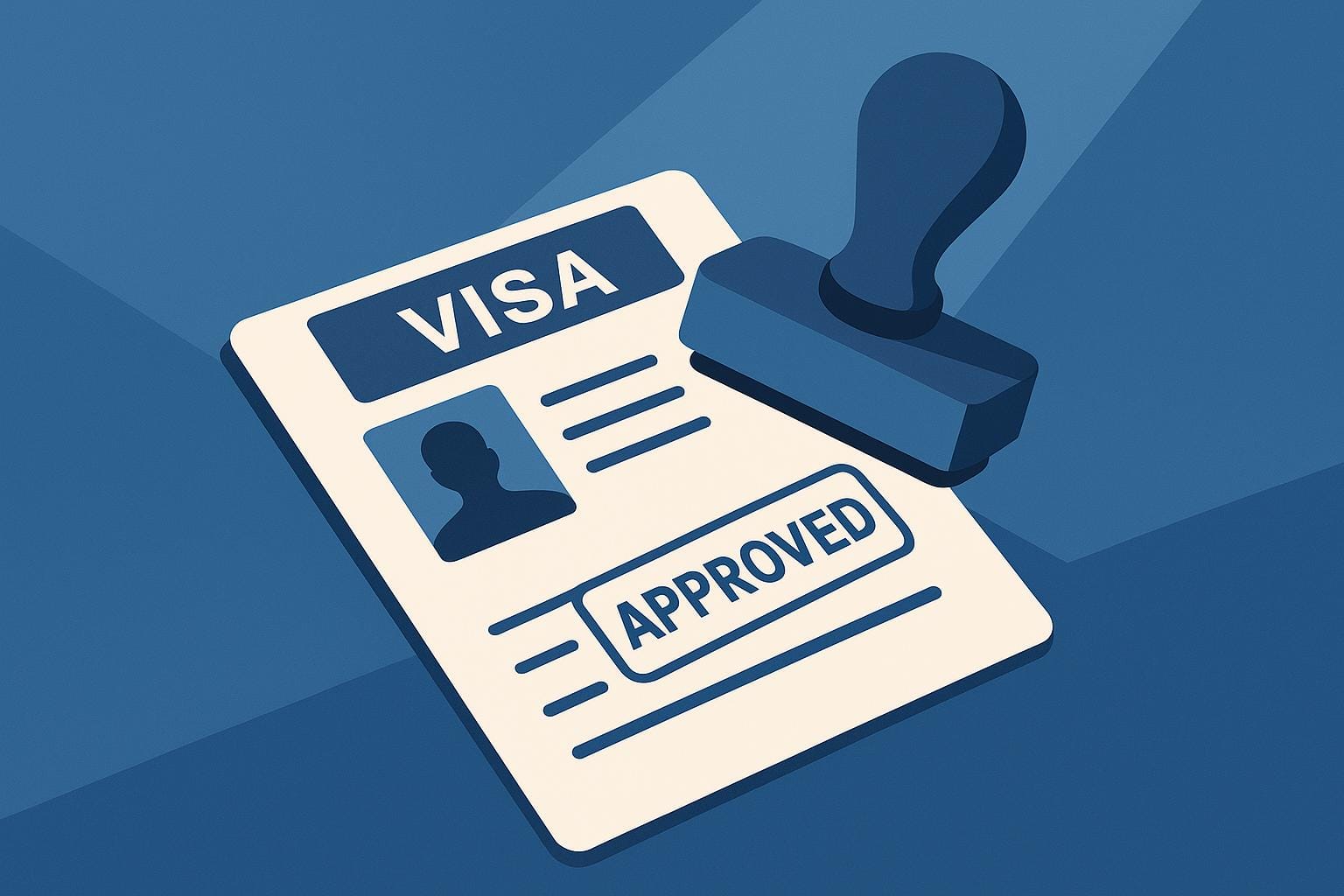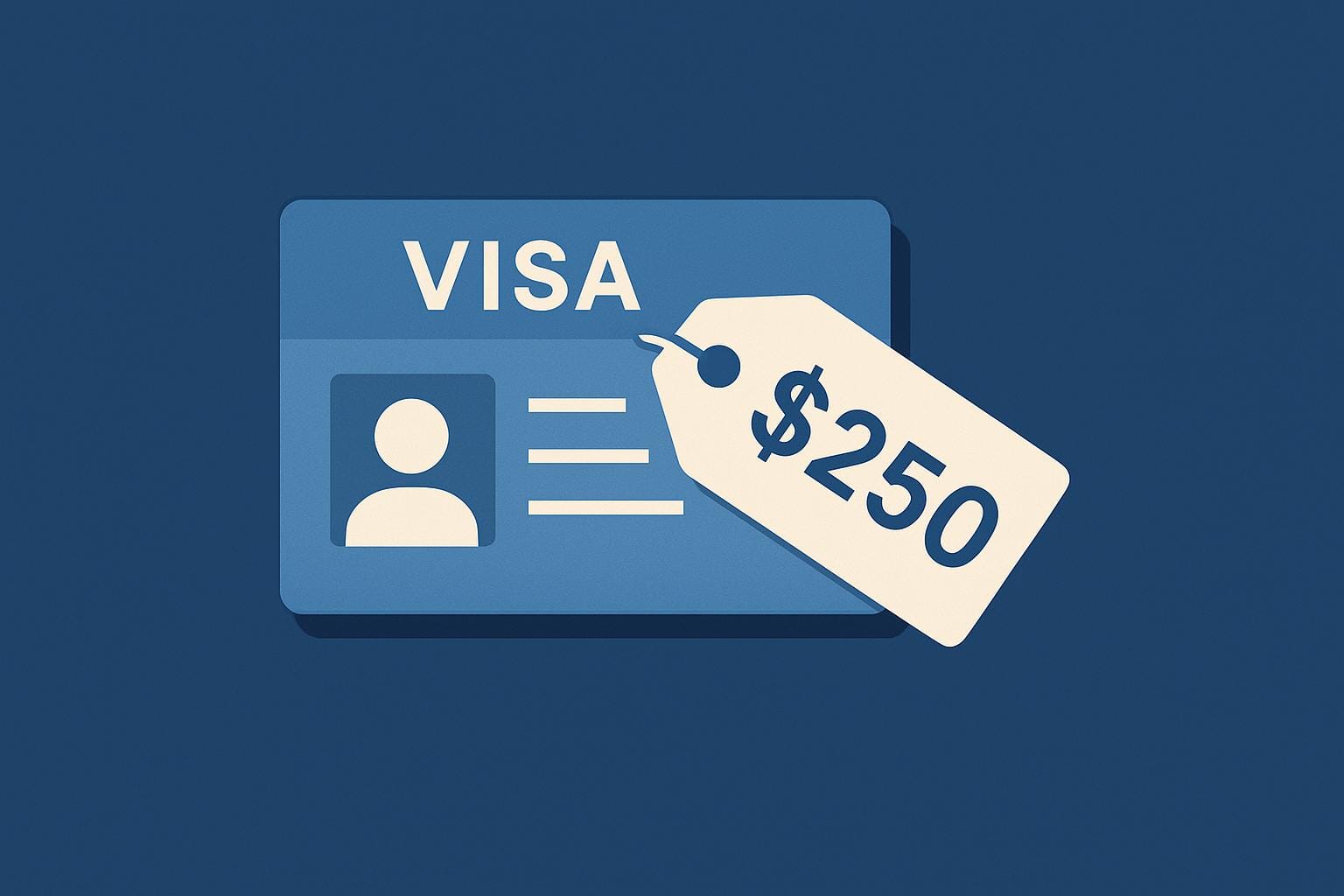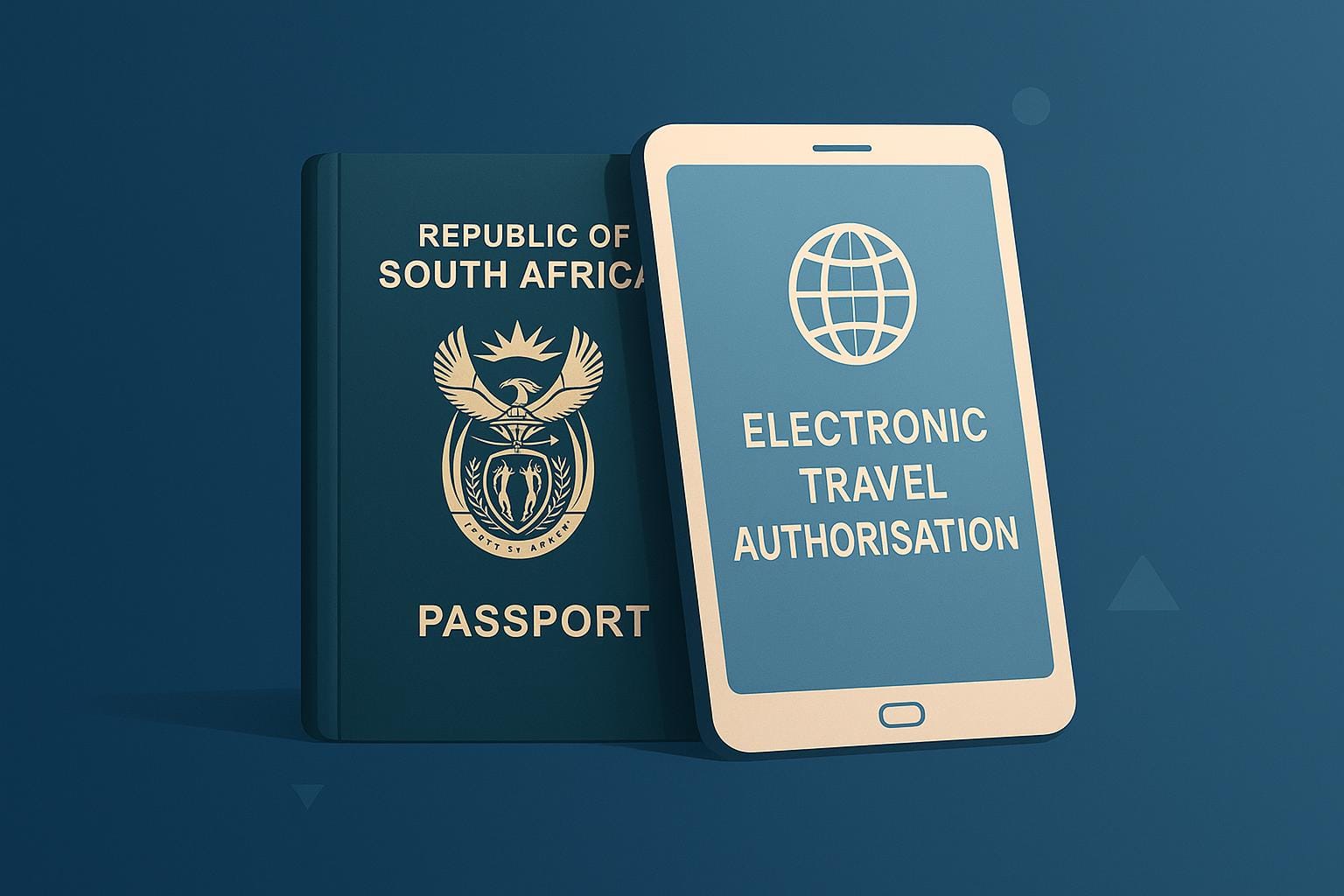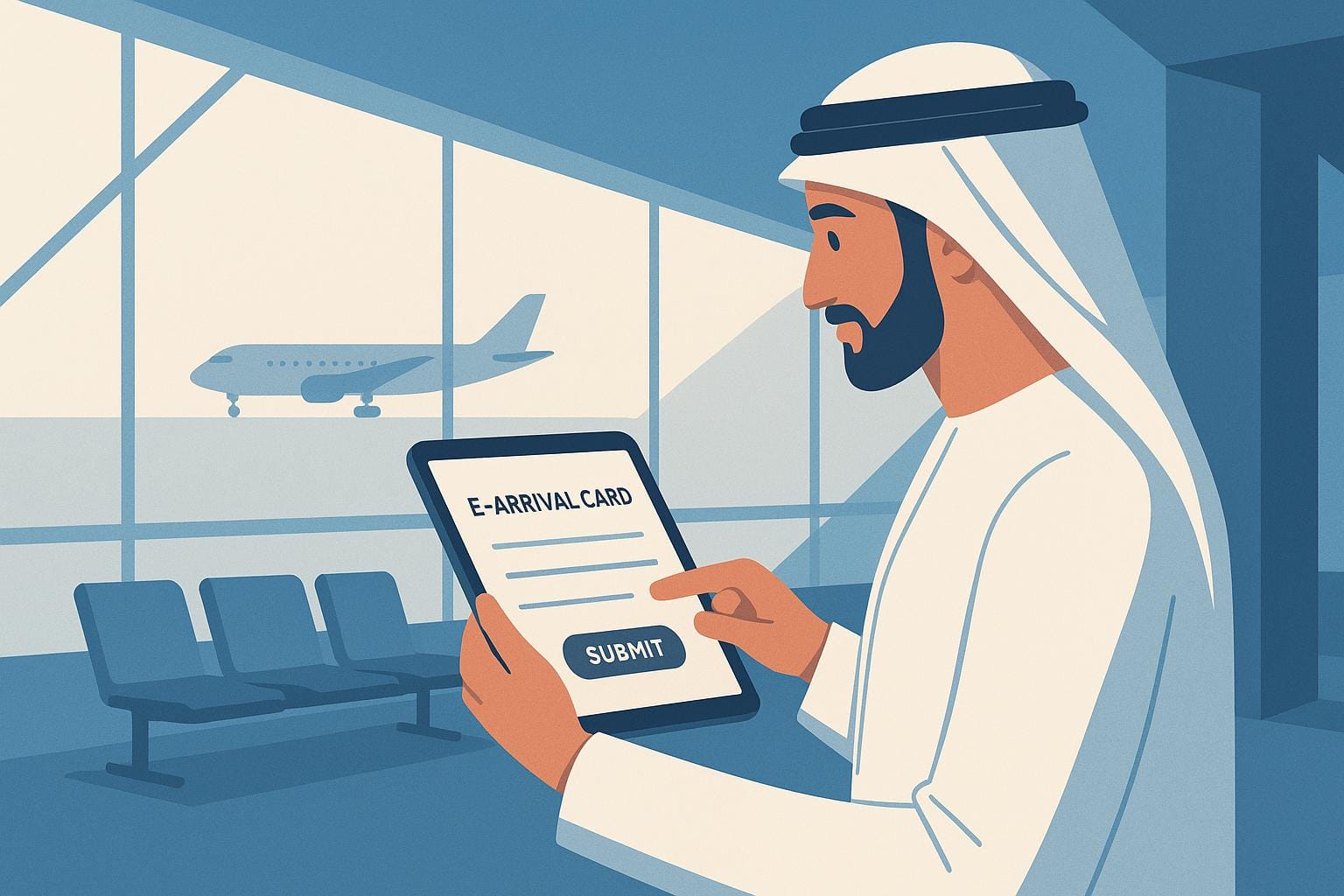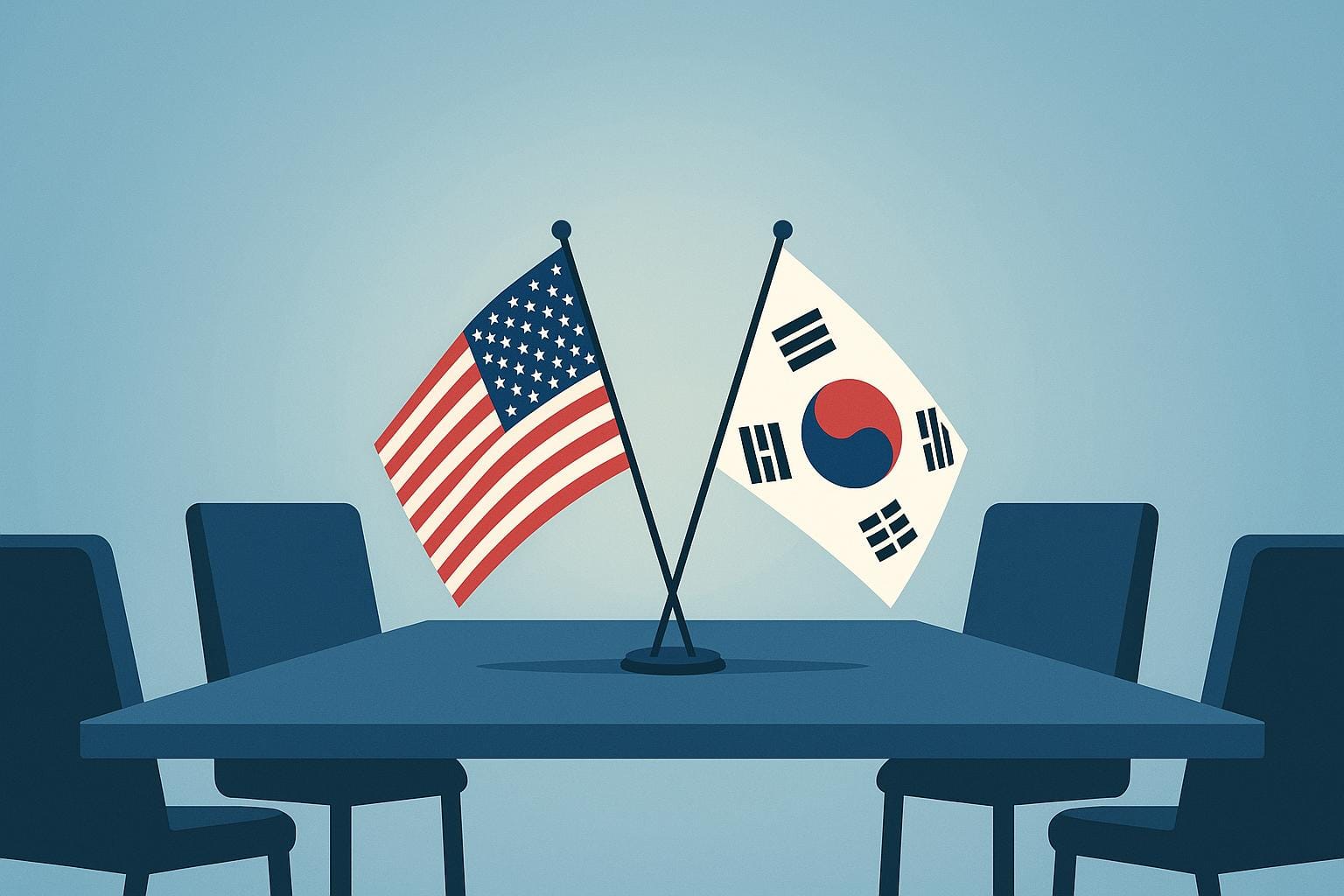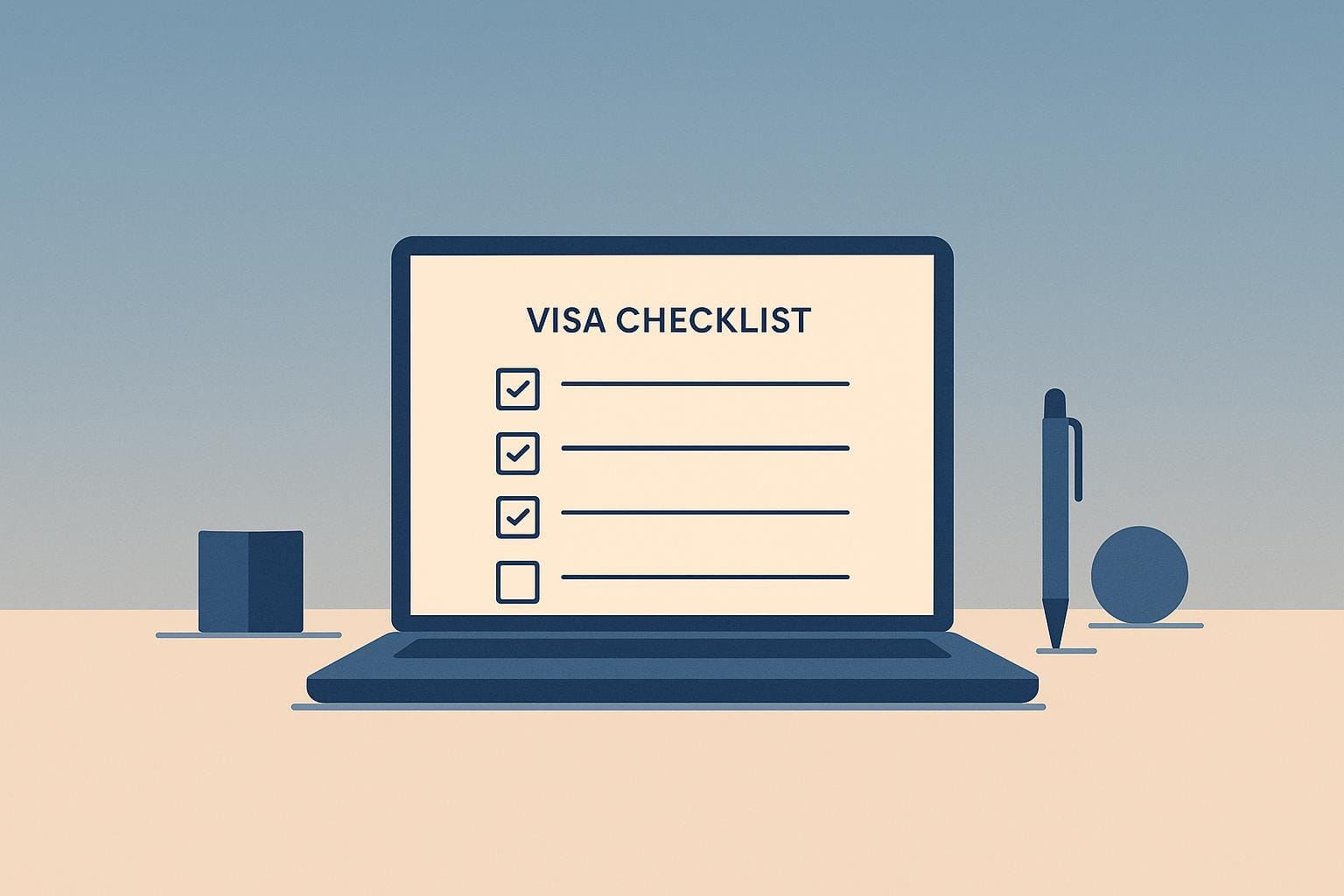Looking to simplify business travel to Thailand? The Thailand Board of Investment (BOI) offers specialised short-term business visas designed to streamline corporate mobility. Here's what you need to know:
- Visa Types: Choose from the Non-Immigrant B Visa (for professionals), Non-Immigrant IB Visa (for investors), or SMART Visa (for skilled professionals and startup founders).
- Fast Processing: BOI visas and work permits can often be issued within a single day via the One Stop Service Centre.
- Eligibility: BOI-approved companies benefit from easier compliance, reduced restrictions, and online application systems.
- Key Incentives: Corporate tax exemptions for up to 13 years, flexible staffing ratios, and 100% foreign ownership for eligible companies.
- Updates in 2025: Simplified Long-Term Resident (LTR) Visa requirements and reduced financial thresholds for specific categories.
Why it matters: These pathways save time, reduce bureaucracy, and offer financial benefits, making Thailand a top destination for business expansion.
How Thailand BOI Supports Business Visa Processing
The Thailand Board of Investment (BOI) plays a key role in supporting corporate mobility by offering tailored visa frameworks. These frameworks are particularly beneficial for businesses in sectors like technology, manufacturing, and research and development. By providing a mix of tax incentives and non-tax benefits, the BOI helps attract foreign investment and facilitates smoother business expansion across Southeast Asia.
To streamline visa and work permit processes, the Thailand Investment Ecosystem Centre (TIESC) integrates the services of the One Start One Stop Investment Centre (OSOS) and the One Stop Service Center. TIESC works closely with the Immigration Bureau and the Department of Employment, creating a unified system for processing applications for foreign professionals.
BOI-certified companies gain access to an online pre-approval system that simplifies visa and work permit applications. This system is designed to cater to a variety of visa categories, ensuring businesses can meet their specific needs.
Main Visa Types Supported by BOI
The BOI supports three main visa categories, each tailored to different business requirements:
- Non-Immigrant B Visa: Designed for professionals working at BOI-approved companies, this visa offers streamlined application procedures.
- Non-Immigrant IB Visa: Geared towards individuals involved in investment activities, this visa allows a stay of up to 90 days for those working on BOI-approved projects.
- SMART Visa: Aimed at skilled professionals, executives, investors, and startup founders, this visa provides extended validity periods to support long-term business involvement.
In January 2025, the Thai Cabinet introduced updates to the Long-Term Resident (LTR) Visa programme, based on BOI recommendations. These updates simplified requirements and consolidated SMART Visa categories. Notable changes included reducing the company revenue threshold for Work-from-Thailand Professionals from US$150 million to US$50 million, and removing the US$80,000 annual income requirement for Wealthy Global Citizens. By the end of 2024, over 6,000 LTR visas had been issued, with Europe leading the way with 2,500 recipients, followed by the United States with 1,080.
Allowed Activities and Stay Duration
Each BOI-supported visa category is tailored to specific business activities. For example, Non-Immigrant B Visa holders can engage in general business operations, while Non-Immigrant IB Visa holders focus on investment-related projects. SMART Visa holders, on the other hand, benefit from longer validity periods, enabling them to take on extended roles in business development.
BOI-certified companies also enjoy increased flexibility in hiring international staff thanks to expanded worker quotas. Additionally, visa and work permit renewals for BOI employees can be handled through online portals, further simplifying the process.
The timeline for BOI approval typically ranges from 40 to 90 days, depending on the complexity of the investment. Once approved, subsequent visa processing becomes faster, and eligible companies can benefit from Corporate Income Tax exemptions for up to 13 years, depending on the type, industry, and location of their projects. To ensure smooth processing, companies are encouraged to maintain accurate records and use the BOI e-Service platform for submitting documentation. It’s also important for BOI-promoted companies and their foreign staff to include TM.30 notification receipts with all visa applications, extensions, and renewals.
Eligibility Criteria and Required Documents
Meeting the eligibility criteria and providing the necessary documents are crucial for a smooth visa application process under the BOI's initiatives. These requirements ensure that applications align with Thailand's investment goals and maintain efficiency throughout the process.
Company Sponsorship and Financial Criteria
To qualify, companies must demonstrate financial capability and align their projects with Thailand's investment priorities. For Non-Immigrant IB Visas, projects must contribute to Thailand by promoting exports, creating jobs, using local raw materials, engaging with provincial areas, transferring technology, and avoiding disruption to local businesses.
For SMART Visas, investors face specific financial thresholds. A minimum direct investment of THB 20 million (around £440,000) is required in technology-driven companies involved in manufacturing or services. For start-ups or approved accelerator programmes, the threshold drops to THB 5 million (around £110,000), provided the investor holds at least 25% company shares or a director position. These investments qualify applicants for a two-year visa.
For Wealthy Global Citizen LTR Visas, applicants must show assets worth at least $1 million (around £800,000) and an annual income of $80,000 (around £64,000) for the two years prior to application. Additionally, a minimum investment of $500,000 (around £400,000) in Thailand is required. This can include government bonds, real estate, or foreign direct investments.
Once financial requirements are met, specific documentation must be submitted to support the application.
Industry-Specific Document Requirements
Document requirements vary by sector, reflecting the BOI's focus on targeted industries. These industries are categorised into four groups: Bio-Circular-Green (BCG) Economy Industries; Advanced Manufacturing Industries; Basic and Supporting Industries; and Digital, Creative Industries, and High-Value Services.
Standard documents required for all visa applications include:
- A passport valid for at least six months
- A completed visa application form
- A recent passport-sized photograph (4 x 6 cm)
- Proof of sufficient funds (20,000 Baht per individual and 40,000 Baht per family).
For companies sponsoring applicants, the documentation requirements are extensive. These include business registration and licences, a list of shareholders, a detailed company profile, and comprehensive information about business operations [18,20]. Additional documents include a list of foreign workers (with names, nationalities, and positions), a map of the company location, and up-to-date financial statements such as balance sheets and tax filings (Por Ngor Dor 50 and Por Ngor Dor 30) [18,20]. VAT registration (Por Por 20) is also required.
Some industries benefit from adjusted thresholds. For example, high-tech ventures in technology and manufacturing may have reduced investment requirements. Similarly, sectors like agriculture and electronics face less stringent value addition conditions, requiring only a 10% increase [17,21]. Knowledge-based activities are assessed differently, with thresholds based on annual salaries rather than fixed capital, recognising the importance of intellectual contributions.
For Non-Immigrant IB Visas, companies must provide evidence that their projects align with BOI objectives. This includes demonstrating market demand, submitting detailed financial projections, and showing the potential economic benefits for Thailand. The approval process for these applications typically takes 40 to 90 days, depending on project complexity.
Non-Immigrant B Visas require an approval letter from the Ministry of Labour and the submission of Form WP3. For business purposes, a letter from the applicant’s company is needed, detailing their position, length of employment, salary, and purpose of the visit. Additional documents include proof of correspondence with Thai business partners and evidence of financial stability.
The One Stop Service Centre simplifies the documentation process for eligible applicants, such as executives or experts covered by the Investment Promotion Act, Petroleum Act, or Industrial Estate Authority of Thailand Act. This service reduces bureaucratic hurdles while maintaining compliance with the required standards. These detailed requirements lay the groundwork for the application process to proceed smoothly.
BOI Visa Application Process Steps
The BOI visa application process is a step-by-step system that stands apart from traditional visa procedures. Knowing the details of each stage can help corporate applicants navigate the process smoothly while staying compliant.
Application Submission Steps
The process kicks off with creating a position on the BOI online platform that aligns with the applicant's qualifications. It's essential to ensure accuracy at this stage, as any errors can lead to delays.
Once the position is submitted, BOI approval usually takes about seven days. During this time, companies should be ready to respond quickly to any follow-up questions to keep things moving.
After the position is approved, the company receives an invitation letter from the BOI. This letter is a key document for the visa application at the Thai Embassy, as it officially endorses both the position and the applicant's role in the BOI-promoted project.
The next step involves setting up the applicant's profile on the BOI Single Window system for the approved position. All relevant qualifications and supporting documents must be uploaded here, and the approval process typically takes 2 to 3 weeks. Prompt responses to any queries during this phase are crucial.
Once the profile is approved, the applicant can book an appointment at the One Stop Service Centre to obtain both their visa and work permit. As of January 2025, VB & Partners noted that BOI-promoted companies can use the One Stop Service Centre for faster processing of visas and work permits.
The initial visa and work permit are valid for one year, with an efficient process available for extensions. The integration of digital tools has further simplified each step, making the entire application process more seamless.
Digital Tools for Visa Processing
Thailand has developed a range of digital platforms to simplify the BOI visa application journey. The e-Investment Promotion portal is the go-to platform for company registration and applying for BOI investment promotion. Corporate applicants should start here to establish their eligibility.
The BOI Single Window system centralises visa and work permit applications for BOI-promoted companies. However, recent updates to the platform, such as mandatory password changes and revised title requirements, have occasionally caused delays. Staying informed about these updates is critical for smooth processing.
For specific needs, the e-Expert System handles BOI-approved positions, while the Smart Visa Online Web Service manages Smart Visa applications. Knowing which platform applies to a particular visa type can save time and prevent unnecessary delays.
The e-Visa application system offers a fully online alternative. Applicants can create an account on the Thai e-Visa website, submit their application, upload documents, and pay fees online. Once approved, the e-Visa is sent via email, removing the need for embassy visits in many cases.
Additionally, all non-Thai nationals must register for the Thailand Digital Arrival Card (TDAC) before entering the country. This replaces the old paper-based entry system and integrates with other BOI platforms to streamline the arrival process for business travellers.
For BOI-promoted applicants, the One Stop Service Centre (OSOS) in Bangkok combines digital pre-processing with in-person finalisation, ensuring faster service. This hybrid approach balances efficiency with the hands-on support needed for complex cases.
HR teams should keep a close eye on updates to these digital platforms. Regular changes to systems and requirements mean that staying on top of developments is vital for successful visa management.
Compliance Guidelines for HR and Legal Teams
Navigating the requirements for BOI short-term business visas involves strict adherence to reporting deadlines and documentation rules. Failing to meet these obligations can result in hefty penalties, making it essential for HR and legal teams to stay on top of compliance.
Extension and Reporting Requirements
One of the key compliance measures for BOI visa holders staying beyond three months is the 90-day reporting requirement. Foreign nationals must report their address every 90 days using the TM.47 form, along with copies of relevant passport pages. This can be done through approved methods, and missing the deadline triggers a fine of 2,000 THB. If the oversight is discovered later, the fine increases to 5,000 THB. To avoid such penalties, external reporting services are also available for assistance.
Another critical obligation is the TM30 residence notification. Since May 2025, the Thailand Board of Investment mandates that this notification be submitted to support both initial long-stay visa applications and renewals through the BOI Single Window System. Immigration officials require proof that a foreign national’s residence has been reported within 24 hours of their arrival. HR teams must ensure they obtain and retain the TM30 receipt as evidence of compliance.
Work permit regulations operate independently of visa requirements and come with severe penalties for violations. Fees for work permits depend on their duration, while non-compliance can result in fines ranging from 2,000 THB to 100,000 THB and even imprisonment of up to five years. Additionally, working outside the scope of the permit or at unauthorised locations may result in fines of up to 20,000 THB. Overstaying a visa incurs a daily fine of 500 THB, capped at 20,000 THB, but prolonged overstays could lead to detention, deportation, and re-entry bans.
To manage these obligations effectively, HR teams should implement tracking systems for visa expiration dates and reporting deadlines. Starting the renewal process at least 30 days before a visa’s expiry provides a safety net for any delays. Maintaining accurate records is a cornerstone of compliance efforts.
Record Keeping and Audit Preparation
Meeting reporting deadlines is just one aspect of compliance - thorough record-keeping is equally vital. BOI-promoted companies face additional financial documentation requirements, such as maintaining accounting books for at least five years. Financial institutions have even stricter rules, requiring records to be kept for 7–10 years. Late filings can lead to fines of up to 200,000 THB.
Visa-related documentation must also be meticulously organised. This includes keeping copies of BOI approvals, invitation letters, TM30 receipts, work permits, and extension applications for potential audits. Since May 2025, the Thailand Digital Arrival Card (TDAC), which replaced the TM6 form, has introduced new digital records that HR teams must monitor.
Employment documentation under the Labour Protection Act also demands attention. Minimum wage requirements, which vary by province, range from 328 to 336 THB per day.
Annual audits are another critical compliance area. Companies must hire licensed CPAs or audit firms registered with the Thai Federation of Accounting Professions. Audited financial statements must be submitted to the Ministry of Commerce within 150 days of the fiscal year’s end. If the statements are prepared in a language other than Thai, certified Thai translations are required.
As Thai authorities continue to modernise their systems, digital record management has become increasingly important. Regularly reviewing regulatory updates helps businesses stay compliant, and many companies engage professional accounting firms to handle bookkeeping, tax filing, and auditing. These firms ensure records are maintained in Thai and in Thai Baht, meeting local standards.
To assist HR teams, VisaDoc offers compliance tracking tools that automate deadline reminders and streamline document management. These features integrate seamlessly with existing HR systems, helping to minimise the risk of compliance lapses.
Technology Solutions for Visa Management
Modern technology has revolutionised how multinational corporations manage Thailand BOI short-term business visa applications and ensure compliance. Gone are the days of endless paperwork and fragmented tracking systems, which often caused delays and heightened compliance risks.
With AI and machine learning, handling visa applications has become faster and more precise. These technologies can process vast amounts of data, verify document authenticity, assess applicant eligibility, and flag potential issues before they lead to delays or rejections.
Digital platforms now allow applicants to submit their documents online and monitor their application status, eliminating the need for in-person visits to immigration offices. As Mohammad Khalid Hasan, Director (Business Development) at World View International, puts it:
Digital platforms make immigration processes more accessible to applicants. They can submit applications, upload documents, and track their progress from anywhere.
The adoption of automated processing systems has also streamlined the handling of high application volumes, significantly cutting processing times. Real-time tracking provides applicants with timely updates, reducing uncertainty during the visa process.
VisaDoc's AI Tools for BOI Compliance
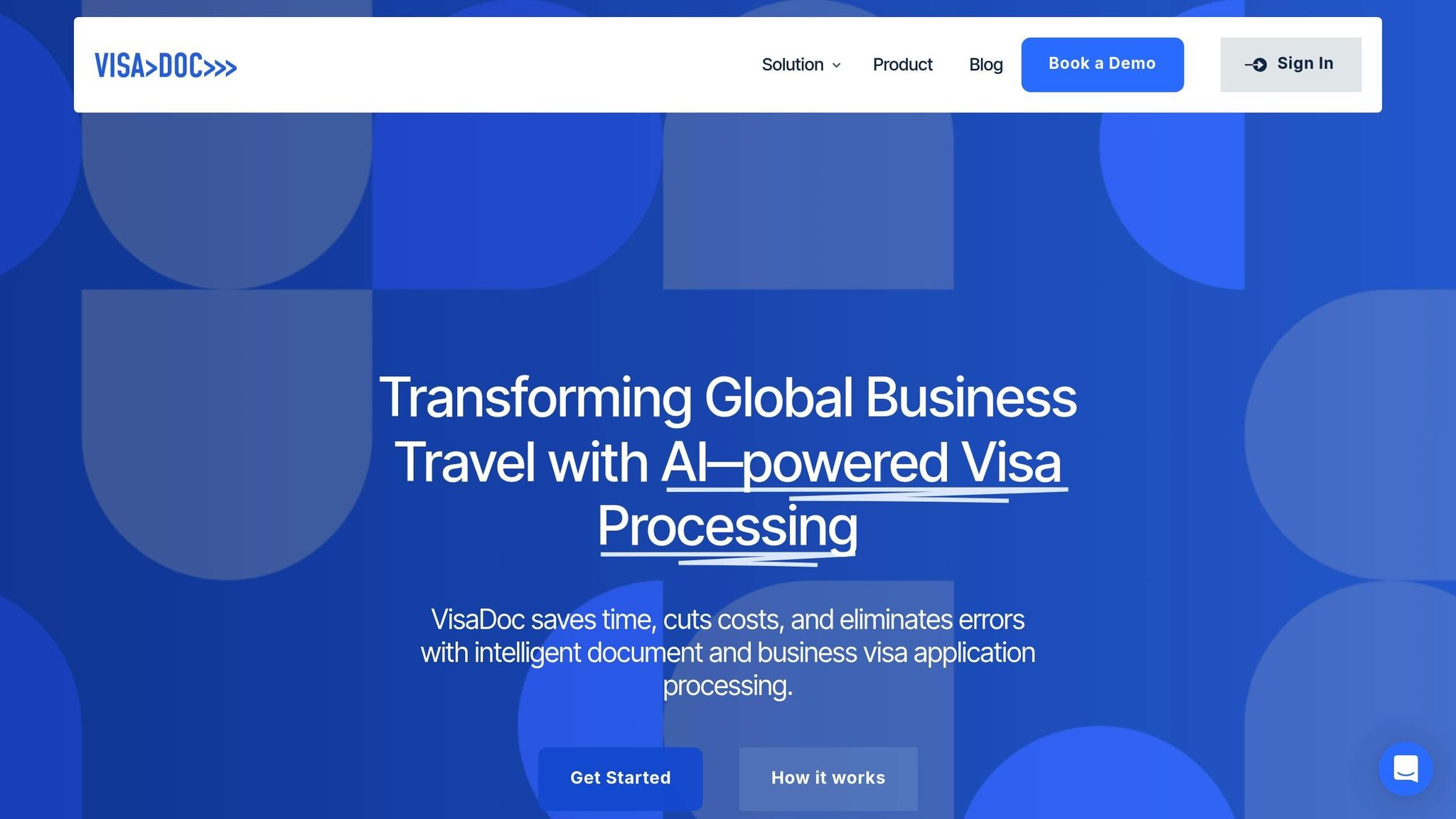
VisaDoc has embraced these technological advancements, offering AI-driven tools tailored to the specific needs of BOI compliance. Its centralised platform addresses common HR challenges in managing BOI visa applications. By automating processes such as application assistance, document verification, and error detection, VisaDoc reduces delays and minimises the chances of rejections.
The efficiency gains with VisaDoc are striking. The platform reduces processing times by 70% and eliminates most manual tasks. This allows HR teams to shift their focus from administrative duties to strategic mobility planning.
VisaDoc’s compliance-focused features are designed to meet BOI requirements. These include smart document collection and verification to ensure all paperwork aligns with Thai standards, automated eligibility checks to prevent incomplete submissions, end-to-end process tracking for full visibility, and real-time monitoring to ensure companies stay within permitted BOI activities.
To enhance security and reduce fraud, VisaDoc employs biometric verification for document checks. This feature ensures authenticity and is especially valuable for BOI applications, where meeting specific documentation and activity guidelines is critical.
HR System Integration Options
Integrating visa management tools with HR systems can further improve operational efficiency. By syncing visa data with payroll systems, companies can accurately track employee locations and work authorisations, ensuring seamless compliance.
This integration enables automatic compliance monitoring, linking visa expiration dates with employee records. Automated alerts notify HR teams of upcoming renewals, reporting deadlines, and other BOI-specific compliance requirements. For instance, the strict 90-day reporting rule can be easily managed with these reminders, helping avoid costly mistakes.
Workflow automation simplifies the visa request process from start to finish. When employees submit travel requests through HR portals, the system automatically initiates visa applications, gathers necessary documents, and tracks progress. This eliminates duplicate data entry and eases the administrative workload for HR teams and employees alike.
VisaDoc’s API capabilities allow it to sync with popular HR platforms, ensuring smooth data integration. This ensures accurate mobility data for operations and audits. The platform also extends its integration to travel booking systems, aligning visa approval timelines with business travel plans.
Additionally, reporting and analytics tools offer HR teams insights into visa processing trends, approval rates, and compliance metrics. These insights help identify bottlenecks, optimise future applications, and maintain the detailed records required for BOI compliance audits. By leveraging these integrations, companies can align visa management with their broader goals for international mobility and business success.
Conclusion: Getting the Most from BOI Business Visas
Thailand's BOI short-term business visa pathways have become a vital resource for multinational companies operating in Asia. In 2023 alone, the Board of Investment (BOI) supported over 1,600 new enterprises, highlighting its growing appeal to global businesses.
One of the standout benefits for BOI-approved companies is the allowance for 100% foreign ownership and flexible staffing ratios. Additionally, the streamlined work permit process - completed within 10–14 business days - significantly reduces the delays associated with traditional visa procedures. For businesses managing frequent travel, this efficiency translates into fewer disruptions and better project timelines.
Beyond operational ease, BOI status offers substantial financial incentives, including corporate tax exemptions for up to 13 years and import tariff waivers. The minimum capital investment requirement, set at £22,000 (1 million baht) for 2024, makes these benefits accessible to a wide range of businesses.
The integration of digital tools further enhances these advantages. For instance, VisaDoc's implementation on ARK ONE has simplified compliance and minimised visa-related disruptions. A case study from Noah Mobility in April 2025 demonstrated how this technology reduced delays, addressing a critical issue as 17% of business trips are disrupted by visa challenges, costing companies billions annually in lost opportunities.
However, taking full advantage of BOI incentives requires careful management. HR teams play a pivotal role in ensuring compliance with annual employment reports, training updates, and work permit documentation. Businesses can also tap into additional benefits like tax deductions for employee training and grants for research and development.
To maximise the potential of BOI pathways, companies should align visa management strategies with their broader business goals. Consulting official BOI resources to understand eligibility requirements is essential, and seeking legal advice can help navigate the complexities of work permits and compliance.
FAQs
What are the key differences between the Non-Immigrant B Visa, Non-Immigrant IB Visa, and SMART Visa offered through the Thailand Board of Investment?
Foreign nationals planning to engage in business or investment activities in Thailand have several visa options tailored to their needs: the Non-Immigrant B Visa, Non-Immigrant IB Visa, and SMART Visa. Each serves a distinct purpose, depending on the nature of the activity.
- Non-Immigrant B Visa: This is the go-to option for individuals conducting general business activities or working in Thailand. Initially valid for 90 days, it can be extended as needed. The fee is ฿2,000 for a single-entry visa or ฿5,000 for a multiple-entry visa valid for one year.
- Non-Immigrant IB Visa: Specifically designed for those involved in investment activities, this visa allows an initial stay of up to 90 days. Extensions are possible, contingent on the status of the investment.
- SMART Visa: Aimed at highly skilled professionals, investors, executives, and startup founders, the SMART Visa provides up to four years of residency without requiring a work permit. It also comes with added perks, making it an attractive choice for those aiming to establish or expand their business ventures in Thailand.
Each visa caters to different needs: the B Visa is ideal for general business, the IB Visa supports investment-related activities, and the SMART Visa is perfect for skilled professionals and entrepreneurs.
How can businesses ensure they meet Thailand’s 90-day reporting rules and other visa requirements for foreign employees?
Navigating Thailand’s 90-Day Reporting Rules for Foreign Employees
To meet Thailand's 90-day reporting requirements for foreign employees, businesses need a well-organised system to monitor reporting deadlines and visa expiry dates. The 90-day report must be submitted to the Immigration Bureau within a specific window: from 15 days before to 7 days after the 90-day period ends. This can be done either in person or online.
Maintaining accurate records of employees' addresses and visa information is crucial. HR teams should prioritise staying informed about immigration regulations by participating in regular training sessions. Additionally, using compliance management tools can make the process smoother, helping businesses meet these obligations with ease.
What financial and tax benefits are available to BOI-certified companies applying for Thailand's specialised short-term business visas?
Companies in Thailand certified by the BOI (Board of Investment) enjoy a variety of financial perks and tax breaks when applying for specialised short-term business visas. These benefits include up to an 8-year exemption on corporate income tax, waivers on duties for machinery and raw materials, and potential reductions in personal income tax for expatriates.
Other advantages might involve double deductions on transportation expenses and certain operational costs, making it easier for businesses to manage expenses while boosting overall efficiency. These incentives aim to assist international businesses in expanding or operating within Thailand, while also simplifying corporate travel and business activities.
Related Blog Posts
- India Business Travel Guide: Visas, Permits, and Cultural Tips for Success
- Visa Expiration & Renewal Management: Preventing Last-Minute Travel Disruptions
- UAE Business Meeting Visa Express: 14-Day Entry Options for Executive Delegations
- Site Inspection Visits to Manufacturing Facilities in Vietnam: Business Visa Documentation Requirements




